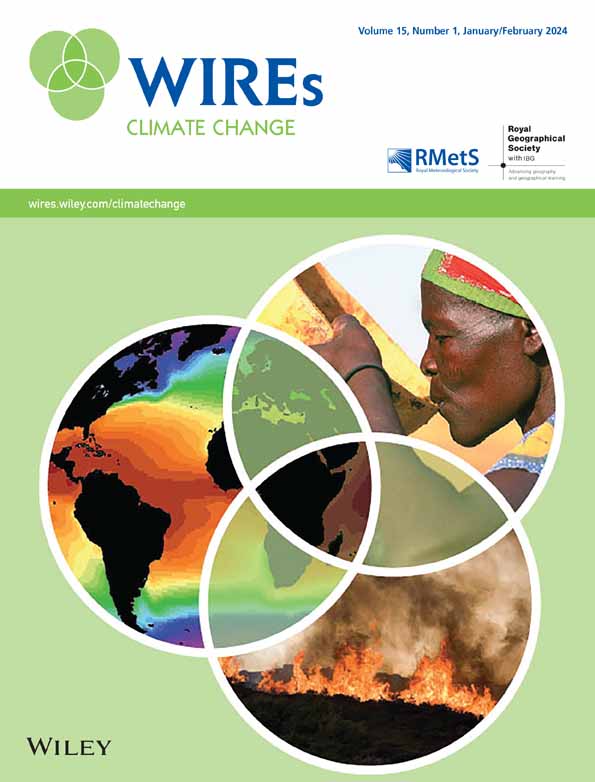Climate change and the hydropower sector: A global review
IF 10.3
1区 环境科学与生态学
Q1 ENVIRONMENTAL STUDIES
引用次数: 30
Abstract
Renewable sources of electricity, such as solar and wind, need to be paired with sources of reliable baseload. Hydropower is a renewable, low‐emission source of electricity baseload available throughout much of the world as an alternative to electricity conventionally provided by thermal combustion of fossil fuels; however, the global hydropower sector as it stands relies upon surface water flows of substantial and predictable volume. This makes it vulnerable to climate change. The impact of climate change on the hydropower sector is difficult to predict, and not globally uniform. It might be positive, negative, or inconsequential depending upon the local timing and magnitude of changes, reservoir size, allocation priority, and the energy market. The secondary effects of climate change on glacier lake outbursts floods, landslides, and sediment load are poorly understood. In addition, when planning hydropower projects for the future, attention must be given to the greenhouse gas contribution of the impounded waters behind storage dams, and the impact of dams on water temperature. In the past decade, sovereign nations and international development agencies worldwide have evaluated the potential of hydropower as a cost‐effective, clean, sustainable option for baseload electricity supply. There is therefore a crucial need to assess the opportunities and risks hydropower poses across a wide range of potential future climate conditions. This review paper conducts a global survey of the literature on the effect of climate change on hydropower and identifies room for improvement in current approaches to evaluation of the net benefits of hydropower projects under climate change.气候变化与水电部门:全球综述
可再生能源,如太阳能和风能,需要与可靠的基本负荷相结合。水力发电是一种可再生的、低排放的电力基本负荷来源,在世界上大部分地区都可以作为传统的化石燃料热燃烧电力的替代品。然而,目前的全球水电行业依赖于大量可预测的地表水流量。这使得它容易受到气候变化的影响。气候变化对水电行业的影响很难预测,也不是全球统一的。根据当地的时间和变化幅度、水库规模、分配优先级和能源市场,它可能是积极的、消极的或无关紧要的。气候变化对冰川湖泊爆发、洪水、山体滑坡和沉积物负荷的次生影响尚不清楚。此外,在规划未来的水电项目时,必须注意水库大坝后蓄水水的温室气体贡献,以及大坝对水温的影响。在过去的十年里,世界各地的主权国家和国际发展机构已经评估了水电作为一种成本效益高、清洁、可持续的基本负荷电力供应选择的潜力。因此,有必要评估水电在未来各种潜在气候条件下带来的机遇和风险。这篇综述论文对气候变化对水电影响的文献进行了全球调查,并指出了气候变化下水电项目净效益评估方法的改进空间。
本文章由计算机程序翻译,如有差异,请以英文原文为准。
求助全文
约1分钟内获得全文
求助全文
来源期刊

Wiley Interdisciplinary Reviews: Climate Change
METEOROLOGY & ATMOSPHERIC SCIENCES-
CiteScore
20.00
自引率
2.20%
发文量
58
审稿时长
>12 weeks
期刊介绍:
WIREs Climate Change serves as a distinctive platform for delving into current and emerging knowledge across various disciplines contributing to the understanding of climate change. This includes environmental history, humanities, physical and life sciences, social sciences, engineering, and economics. Developed in association with the Royal Meteorological Society and the Royal Geographical Society (with IBG) in the UK, this publication acts as an encyclopedic reference for climate change scholarship and research, offering a forum to explore diverse perspectives on how climate change is comprehended, analyzed, and contested globally.
 求助内容:
求助内容: 应助结果提醒方式:
应助结果提醒方式:


